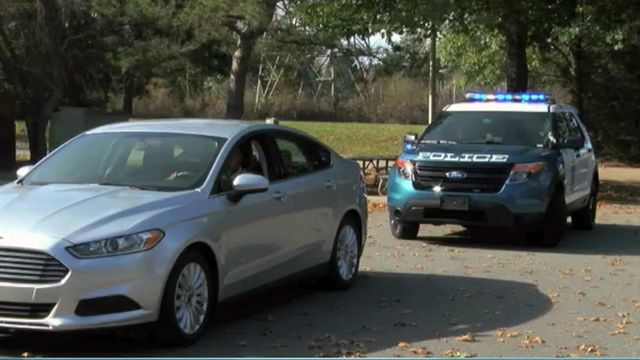NC to teach drivers what to do in traffic stops
The North Carolina driver's handbook is 94 pages of everything anyone could possibly need to know about driving laws - except what to do when pulled over by law enforcement. That will change in 2018.
Posted — UpdatedThat will change in 2018.
Law enforcement officers say one of the most common questions they get from people is how to handle a traffic stop – Do you get out of the car or stay inside? Get out your registration or keep your hands on the wheel?
The answers, by the way, are stay inside and keep your hands on the wheel until the officer asks for a license or registration. Also, drivers must notify law enforcement if there is a weapon in the vehicle.
Ryan Webb and Paul Kiernan said there was never any discussion of what to do during a traffic stop when they took driver's education in Wake County.
"When I was with my friend who got pulled (over), I had no idea. Scary," said Webb, 19, who was getting his license Thursday at the Division of Motor Vehicles office on Avent Ferry Road in Raleigh.
"My family kind of told me to be respectful and calm," Kiernan said. "You also learn a little bit from TV, like, 'Keep your hands where I can see them on the steering wheel' – stuff like that."
Chantelle Irankunda said she already knows what to do when she sees blue lights in the rear-view mirror because she got stopped while she was practicing for her license exam.
"I forgot to turn on my lights. I was so scared," Irankunda said.
"He pulled us over, and I said that was a good thing because now she'll be more careful," said Lara Kinas, who has been teaching Irankunda to drive.
Kinas said it's important for new drivers to know what to do and not do in a traffic stop.
"It's terrifying for someone who's never been behind the wheel before," she said.
Sophie McKnight, who was at the DMV office to get her learner's permit, said her first instinct would be to call her father if an officer stopped her.
"I don't really know what else I would do," she said.
Mark McKnight said it's something he definitely will talk about with his daughter.
"It is something that they should be learning, certainly," he said.
They can choose to have that noted on their electronic driver's record, so that, if a law enforcement officer runs their license plate, they will know that the driver may not respond to spoken commands.
Related Topics
• Credits
Copyright 2024 by Capitol Broadcasting Company. All rights reserved. This material may not be published, broadcast, rewritten or redistributed.






